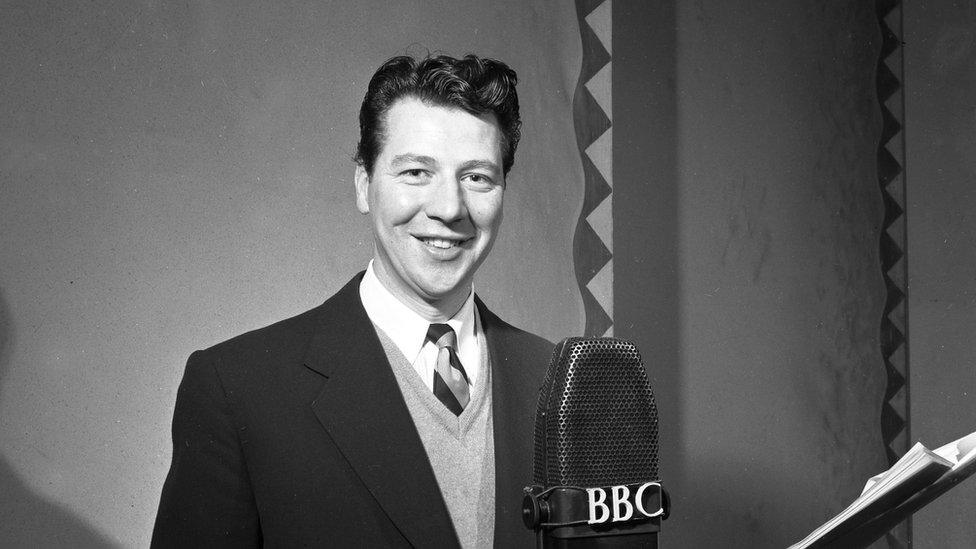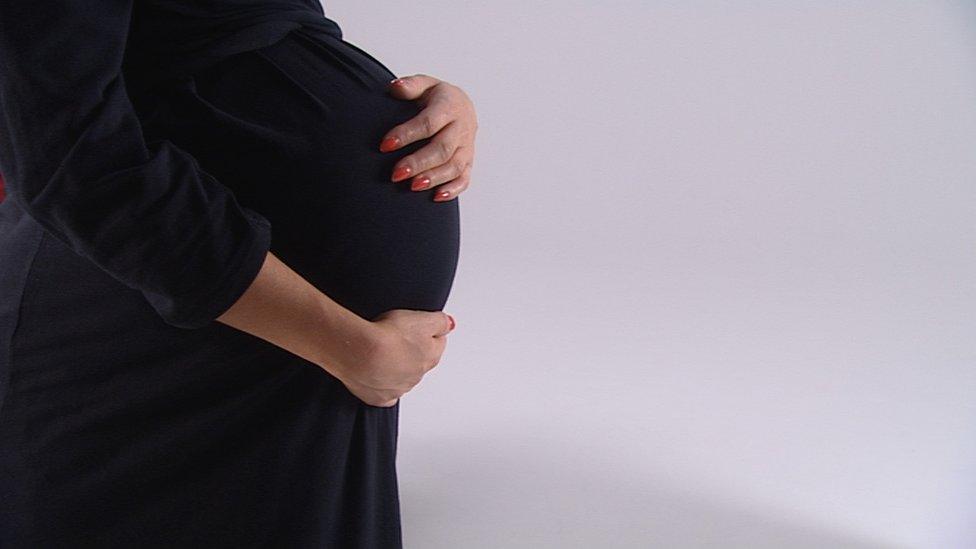Why things may be not be as bad as we think
- Published

Christmas is meant to be a jolly time, the season of good will to all men. But Charles Dickens's Scrooge wasn't the only one to say: "Bah! Humbug!" to that.
Why is it that so many of us delight in being negative, not just at Christmas but all year round? Could it be that we're genetically programmed to respond more strongly to the negative than the positive? Nick Higham investigates.
In 1960, Max Bygraves had a hit with the title song from the cockney musical Fings Ain't What They Used To Be.
Bygraves's world was changing, and he wasn't happy about it. There were fashionable working-class teddy boys in drainpipe trousers, upper-class girls slumming it in coffee houses, traffic jams instead of London trams, parking meters.
The song struck a chord: Max sang it for the Queen at that year's Royal Variety Performance. The reason? Most of us it seems really do think not only that things aren't what they used to be, but that they're actively worse.

Was Max Bygraves right when he sang Fings Ain't What They Used To Be?
That's not really true of course. Parking meters were quite a good idea, really. But most of us, most of the time, seem to think the world's going to hell in a handcart - even when it isn't.
The evidence is in a report by the research company Ipsos-Mori, The Perils of Perception. Our perceptions of the world, it turns out, are often at odds with the reality - and significantly more negative.
The researchers put the same questions to people in 38 countries, and found a pattern.
Some examples:
The murder rate in most countries has fallen significantly in the past 15 years. That's the reality, but most people don't believe it - fewer than one in 10 thinks there are fewer murders
Deaths from terrorist attacks around the world were lower in the past 15 years than in the previous 15 - but only a fifth of us think that's the case
Even when it comes to other areas of public life, people's assessments can tend to be incorrect.
For example, people overestimate the number of teenage pregnancies by what the researchers call staggering amounts.
In some countries, they think about half of teenage girls get pregnant every year: in reality, the highest figure for any country is 6.7%, and the rate across all 38 countries is just 2%.

People have a tendency to greatly overestimate figures for teenage pregnancy, researchers say
One reason for this tendency to assume the worst of the world, say the Ipsos-Mori people, is that we're genetically programmed to believe bad news more readily than good.
Our brains process negative information in a different way and store it more accessibly than positive stuff.
One neuroscientist demonstrated this by showing people pictures of things known to arouse positive feelings - which apparently include pizzas and Ferraris - and others known to arouse negative ones, such as a mutilated face or a dead cat.
As he did so, he measured the electrical activity in the brain. It turns out we react more strongly to the negative images.
Usually the media gets the blame for plunging us all into gloom and despondency.

Researchers found subjects reacted more strongly to negative images than to positive ones such as pizza
News is by definition something unexpected, surprising, and probably alarming. The world is getting healthier and wealthier, which is good news, but headlines about that sort of thing just don't cut it when there's a terrorist attack or a war to report.
"If it bleeds, it leads," is said to be the tabloid news editor's mantra. Whoever coined the phrase clearly had a profound insight into human nature.
Critics talk about "fear-based media". If we're fed such a relentlessly negative diet, they ask, is it any wonder we end up thinking the world is a terrible place?
Except, it turns out, we already thought that - or at least were predisposed to think it.
All those negative news stories are just reinforcement, feeding us what we're programmed to want - because it may save our lives.
This hypersensitivity to negative information - or bad news - apparently served an important function as human beings evolved.
Having the kind of brain that reacted more strongly to information about possible dangers meant, quite simply, that you were likely to live longer.
And those who didn't have that kind of brain? Well, as one scientist delicately put it, they "got edited out of the gene pool".